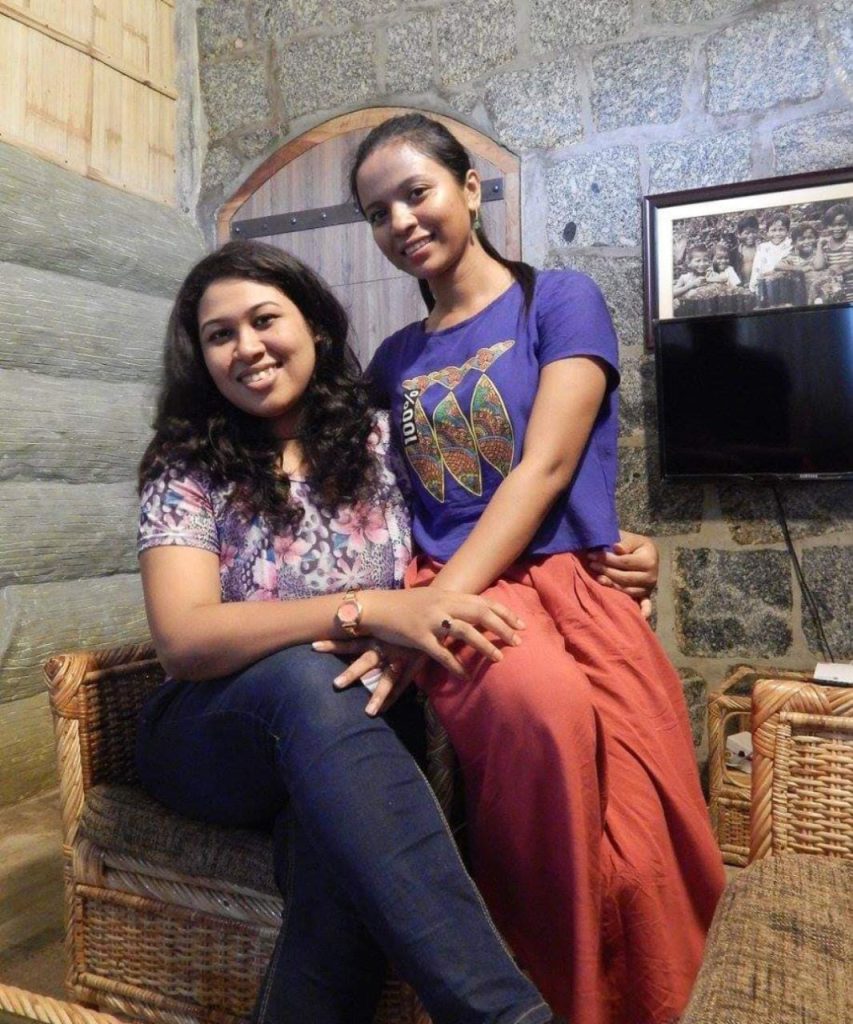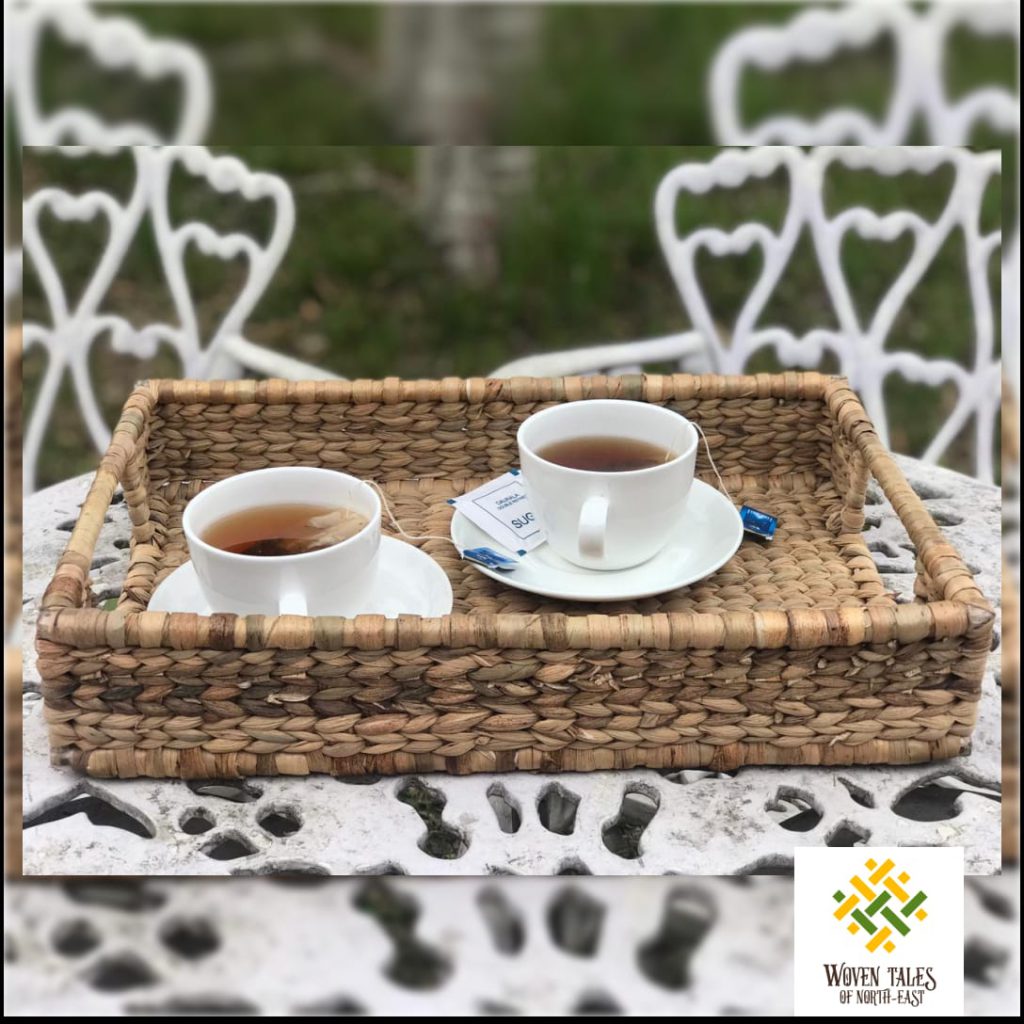
Water hyacinth which is often labeled as a troublesome aquatic weed is nowadays gaining importance in the lifestyle and decoratives products market.
In the past few years, products made from water hyacinth have gained a lot of popularity around the world and the amount of creativity showcased in turning this problematic weed into something beautiful and useful is immense. Local artisans are creating wonders from water hyacinths, and one of them is the Woven Tales of Northeast.
Woven Tales of Northeast, founded by two friends Paulmie Gogoi, who works at an event management company, and Dr. Tanushree Devi who is a dentist by profession, started their venture in 2020. The aim is to make sustainable products and what's better than making use of the otherwise unnecessary weed- water hyacinth?

"We wanted to start something of our own and stumbled upon the idea of making items with water hyacinth as it is abundantly available around us. Woven Tales of North East was founded during the lockdown. The market closures led us to a difficult start," said Paulmie Gogoi to Business Northeast.
"We approached NEDFI (North Eastern Development Finance Corporation) for contacts of artisans. The first year was on exploring, funds, research, and development. Tanushree took up the research and development section, and in the meantime, I got enrolled in an entrepreneurial program at the Nadathur S.Raghavan Centre for Entrepreneurial Learning (NSRCEL) which was initiated by IIM Bangalore," she added.
Paulmie enrolled in the Women Startup Programme, which specifically concentrated on women's entrepreneurship. Her idea of making products from water hyacinth got selected for pre-incubation and with the mentorship and guidance of NSRCEL, they moved ahead little by little. During the mentorship period, they started making prototypes of their products before launching them commercially.
"We explored and expanded their ideas and examined what more can be done to give strength to their products," said Dr. Tanushree Devi.
"Our initial investment was of Rs. 1 lakh for research and development, and we received a grant of Rs. 75,000 from NSRCEL. We received the first Rs.25,000 during the pre-incubation period to use for research, marketing, or advertising. And during the incubation period, we received the remaining Rs.50,000”.
Until their soft launch, they have spent 70 percent of their total funds on production and the remaining 30 percent on marketing. The profit that they earned during the launch was again re-invested in the business.
Woven Tales of North East have earned around 20 to 30 percent of profit in one year and the profit is mostly spent on paying the artisans and marketing. Presently their products are focused on home decor and home utility products like planters, trays, laundry baskets, and more.

The prices of trays start at Rs. 950, planters at Rs.1100 to Rs. 1200, and their bestseller laundry baskets are priced at Rs.1700 to Rs.1800 excluding shipping. The products are sold through collaboration with other stores, websites, and exports.
Paulmie said, “Our initial plan was to go into the retail sector but it was difficult for us because retailing needs a lot of brand building so we decided to explore B2B ( Business to Business) and started cold calling a few furnishing houses, exporters and sourcing agents.”
The venture got its first break in business in February this year when a Bangalore-based furnishing house ‘Jar of Hearts’ approached them for their products.
"They came across the samples and immediately bought our products and the first deal was worth Rs.75,000," she said.
The artisans of the enterprise are from Nagaon and get paid based on the products.
When asked about market competition, Paulmie said “Our main problem is that the people of India are not properly educated on the benefits of sustainable products and perks of sustainability, so people prefer to buy products made of plastic instead of handloom and handicraft products. However, the products which are made from bamboo, cane, jute, and water hyacinth are famous overseas as they prefer a more sustainable form of products.”
She also said that the roots of water hyacinth, which grows 1 meter deep, are chosen as raw material for the finished products.
Presently, most of their products are exported through export hubs though the market of water hyacinth products is dominated by Vietnam and Thailand. Both entrepreneurs are optimistic about their venture and hoping for a positive response both in exports as well as domestic markets.
ALSO READ : Mizoram to introduce smart prepaid power meters from December.